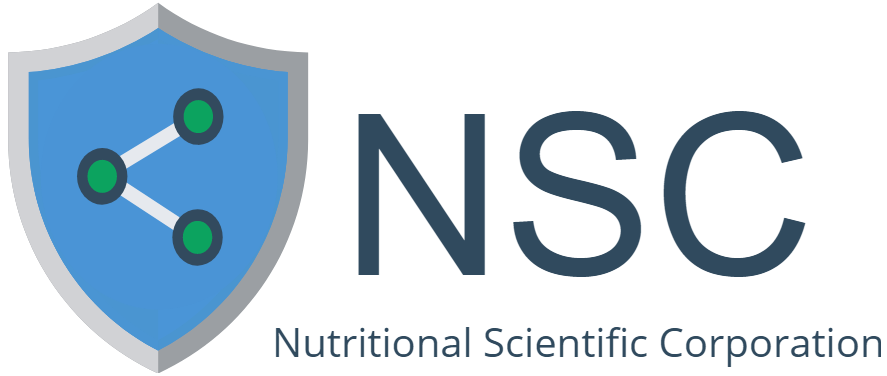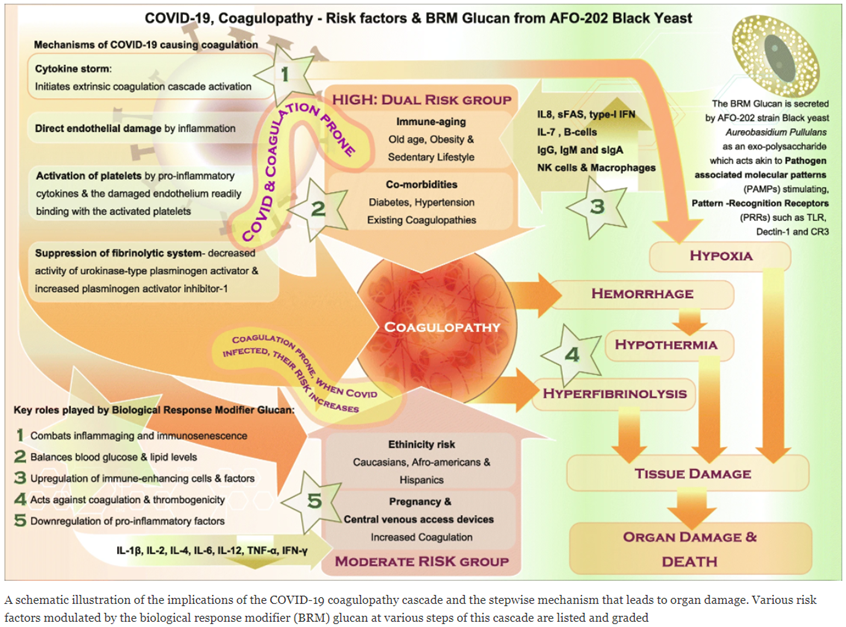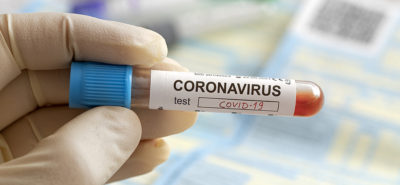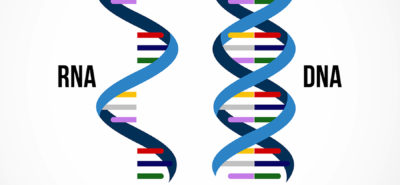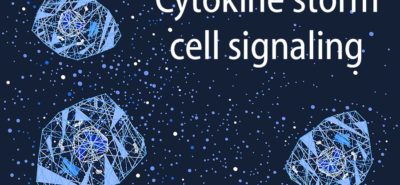Are You taking Beta 1,3/1,6 Glucan Daily? Learn Why the Time is Now!
A recent COVID-19 Study states: “… where there is no definite pharmacological remedy for prevention or treatment presently available, a biological response modifier beta glucan food supplement … modulating the immune response is …worth recommendation for clinical studies of COVID-19, especially in vulnerable populations.” Note: According to the FDA and current vaccine producers there is NO currently FDA approved COVID-19 vaccine. The currently (4/19/21) available COVID-19 vaccines are authorized for humans based on FDA granted temporary emergency use authorization for treatment for 18 years old and over for Moderna vaccine and 16 years old and over for Pfizer/BioNTech. Johnson and Johnson vaccine is currently suspended from U.S. distribution for safety concerns.
Why should you orally take beta 1,3/1,6 glucan? Research below tells you why based on current scientific research and recommendations. You are urged to read these research excerpts and then the entire study dated Oct 16, 2020 at DOI: 10.1186/s12959-020-00239-6 . The beta 1,3/1,6 glucan referenced in this study was not MG beta 1,3/1,6 glucan provided by NSC, but like that beta glucan in the study, the NSC MG beta 1,3/1,6 glucan is classified as a food supplement, biological response modifier-glucan (BLRMG) classified as GRAS. This peer reviewed research is from Japan where beta 1,3/1,6 glucan can be indicated for cancer and immune stimulation.
Beta Glucan [BRMG] – COVID-19: Ikewaki N, Rao K, Archibold AD, Iwasaki M, Senthikumar R, Preethy S, Katoh S, Abraham JK, “Coagulopathy associated with COVID-19 – Perspectives & Preventive strategies using a biological response modifier Glucan,” Thrombosis Journal, Vol 18, 27, PMID: 33082714, DOI: 10.1186/s12959-020-00239-6, Oct 16 2020. Quote: ” Direct endothelial* injury by viruses and dysregulation [failure to properly regulate] of clotting mechanisms due to cytokine storm [CK] are the major precipitating factors of mortality in COVID-19; both are attributed to a fundamental dysregulation of the immune system. …Although evaluation of D-dimer [blood clot activity] and prothrombin [speed of blood clotting] during admission is considered to predict prognosis and mortality, there are no preventive or prophylactic strategies before hospital admission.
Herein, we present our perspectives on the effect of regular supplementation with the biological response modifier beta glucan [BRMG] based on its relevance to immune modulation. This effect is of paramount importance in decreasing the development of severe COVID-19 and reducing mortality against the background of coagulopathy [blood’s ability to form clots is impaired], especially in vulnerable populations.
BRMG [Biological response modifier beta glucan] recognizes and interacts with the innate immune system in humans to help combat infections. Radiation exposure and/or diabetes-induced oxidative stress, which causes disturbances in the measured clotting parameters by enhancing platelet aggregation and increasing thrombin levels, were reversed by yeast BRMG [biological response modifier beta glucan]. …This BRMG reduces the levels of IL-1, IL-2, IL-4 IL-6, IL-12, TNF-alpha, IFN-y, and sFasL** while increasing IL8 and sFAS**, thereby balancing an effective optimal defense against viral infection without hyperinflammation.
Anti-viral defense activities of BRMG [biological response modifier beta glucan] occur through increased IL8, which causes activation, migration, and chemotaxis [movement] of neutrophils to kill virus-infected cells; increased type-I IFN [interferon***] production, which helps kill virus-infected cells; increased IL-7 production, which leads to development and survival of mature T-cells to maintain homeostasis [balance], activation of B-cells, which results in production of virus-specific antibodies (IgG, IgM and slgA) for neutralization of virus toxicity, and increased NK cell activity and macrophage activity.
Prevention of hyperinflammation occurs by preventing the onset of apoptosis [cell death] through increased sFAS production, regulation and suppression of CS [cytokine storms] through activation of Treg**** cells and decreased IL6, and prevention of chemoattraction of monocytes and macrophages, T cells, NK cells, and dendritic cells through a decrease in CXCL10 and CCL2 (monocyte chemotactic protein 1; MCP-1).
Supplementation with the biological response modifier beta glucan (BRMG) could be a solution in the vulnerable population. Beta glucans are potent biological response modifiers. … Ethnically vulnerable populations such as Caucasians, African Americans, Hispanics, the elderly population, and patients with comorbidities [multiple health issues] are at high risk and require prevention during this hypercoagulable state. …In the present scenario, where there is no definite pharmacological remedy for prevention or treatment presently available, a biological response modifier beta glucan food supplement that has several advantages in modulating the immune response is considered to be worth recommendation for clinical studies of COVID-19, especially in vulnerable populations.”
*Endothelial cells form a single cell layer barrier lining all blood vessels and control the flow of substances and fluid between the bloodstream and surrounding tissue.
** Fas and Fas Ligand [FasL]: When the cell death surface receptor Fas is engaged by the Fas Ligand [FasL], apoptosis or cell death results.
***Interferons (IFN) are a series of signaling proteins produced and released by host cells in response to the presence and attempted regeneration of several viruses including those related to Covid-19. When virus-infected, cells release interferons, communication occurs with nearby cells to increase anti-viral defenses.
****TREG are regulatory T cells able to suppress the immune response and inhibit proliferation of T cells and cytokine production.
Note: For in depth research from this study and research 3rd party sources, including why certain comorbidities including diabetes, hypertension and cardiovascular diseases plus being elderly are more susceptible to COVID-19, read the complete research paper free at the link below:
DOI: 10.1186/s12959-020-00239-6. Nobunao Ikewaki as lead researcher is associated with the Dept of Medical Life Science, Kyushu U of Health and Welfare, Nobeoka, Miyazaki, Japan and the Institute of Immunology, Junsei Educational Institute, Nobeoka, Miyazaki, Japan.
